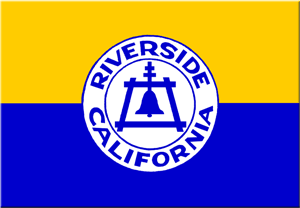Riverside County Warrant Search
Riverside County Warrants
If you miss a court appearance in Riverside County, California, it takes more than a phone call to fix your mistake. Not showing up for a traffic ticket or for a scheduled court appearance may cause a judge to issue a Riverside county warrant for your arrest. Unfortunately, you may not realize you have a warrant against you until after a police officer or sheriff’s deputy knocks on your door to take you into custody. Performing a Riverside warrant search may allow you to avoid the hassle of a sudden arrest by consulting with a lawyer and making arrangements for an orderly and voluntary surrender.
What Is A Warrant?
A warrant is a legal document or order issued by a court. It authorizes any law enforcement officer to take the person named as the subject of the warrant into custody. Police may use such reasonable force as is necessary to restrain the person in order to take them into custody.
Judges usually issue bench warrants when a person fails show up for a mandatory court appearance. For example, if you receive a speeding ticket and fail to appear in court on the date written on the ticket by the police officer, a judge may issue a bench warrant authorizing any law enforcement officer to make an arrest and bring you to the court from which the warrant was issued.
Bench warrants are not limited to criminal cases. If a witness fails to honor a subpoena by refusing to appear in court to testify in a civil or criminal case, a judge has the authority to issue a bench warrant to force them to appear. This may also be true if you ignore a subpoena for jury duty. Some judges may have a letter sent to your last known address warning that failure to appear in court by a certain date will result in the issuance of a Riverside county warrant, but relying upon a letter being sent could have dire consequences should the judge in your case decide to forego a letter and issue a warrant.
 Riverside County Arrest Warrants
Riverside County Arrest Warrants
Arrest warrants are similar to bench warrants in being issued by a court and directing Riverside law enforcement agencies to take the person named in the warrant into custody. Unlike bench warrants initiated by a judge, arrest warrants result from a request by the police or by county prosecutors for authorization to make an arrest.
As a general rule, a police officer who sees you commit a crime will make an arrest without first requesting that a judge issue a warrant. When a victim or other party reports a crime to the police, the officers may take a statement from the victim and any witnesses and use it in their application to a judge for an arrest warrant.
The reason for the difference in procedures followed by the police is that in one situation the officers saw the crime, which gave them probable cause to make an arrest without first obtaining a warrant. In the second instance where police learned of the crime through a victim or witness, police need to present their evidence to a judge who will decide if there is probable cause to issue a warrant for the arrest of a person suspected of committing the offense.
Importance of Running a Riverside Warrant Search
You may not be aware of the existence of a bench warrant or search warrant against you until it is too late to do anything about it. For instance, a police officer who stops you for a traffic violation routinely conducts a Riverside county warrant search to find out if you have any outstanding warrants against you. If the search discloses the existence of a warrant, the officer will place you in handcuffs and take you to a Riverside county jail until court is in session. Depending upon the time of day or night and the day of the week the arrest takes place, you could be held overnight or over a weekend until court reopens.
Running a Riverside warrant search allows you to find out about local or out-of-state warrants. It gives you the chance to contact a lawyer who can resolve issues that may have caused a bench warrant or arrest warrant to be issued in error. If the warrant is valid, the lawyer can arrange for your appearance in front of a judge, so you can avoid spending more time than necessary in custody.
The fact that you no longer live in Riverside County may not protect you from being taken into custody on a warrant. An extradition warrant may be issued for a person suspected of fleeing to another state after committing a crime. The warrant may be enforced through arrest by any law enforcement agency in the country.
How To Run a Riverside County Warrant Search
Information about arrest and bench warrants are public record which anyone can view. For example, some California law enforcement agencies maintain a database that allows the public to search for arrest and bench warrants. Because it is a public record, you may also search for a Riverside warrant through an online service that will conduct the search for you.

Before Comments
Please be advised that the information accessed through SearchQuarry.com searches may not always be accurate or current, as we neither generate nor authenticate the data provided via our service. The reliability and precision of information are primarily contingent upon diverse public sources from which data is compiled. By utilizing SearchQuarry.com, you acknowledge your acceptance of the terms delineated in the SearchQuarry.com terms of service and our privacy policies. Information acquired via SearchQuarry.com must not be utilized for unlawful purposes such as stalking or harassing individuals, or scrutinizing public figures or celebrities. Individuals who contravene these directives may be subject to both civil and criminal legal proceedings and sanctions. It is explicitly stated that SearchQuarry.com does not function as a "consumer reporting agency" as defined by the Fair Credit Reporting Act ("FCRA"), and therefore, does not furnish "consumer reports" pursuant to the FCRA. SearchQuarry.com strictly prohibits the utilization of information garnered from search results (a) for discriminatory practices against any consumer; (b) for assessing a consumer's eligibility for personal credit, insurance, employment, housing, or government licenses or benefits; or (c) in any other manner that may impact a consumer's economic or financial status or standing.


Comments
Last Updated: 2020-05-06